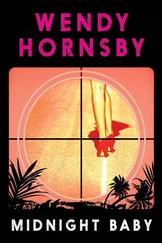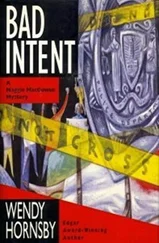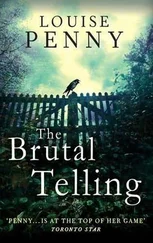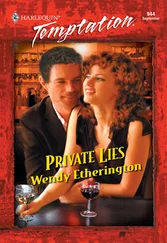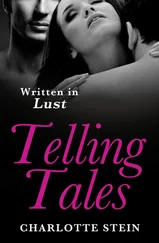Wendy Hornsby - Telling Lies
Здесь есть возможность читать онлайн «Wendy Hornsby - Telling Lies» весь текст электронной книги совершенно бесплатно (целиком полную версию без сокращений). В некоторых случаях можно слушать аудио, скачать через торрент в формате fb2 и присутствует краткое содержание. Жанр: Детектив, на английском языке. Описание произведения, (предисловие) а так же отзывы посетителей доступны на портале библиотеки ЛибКат.
- Название:Telling Lies
- Автор:
- Жанр:
- Год:неизвестен
- ISBN:нет данных
- Рейтинг книги:3 / 5. Голосов: 1
-
Избранное:Добавить в избранное
- Отзывы:
-
Ваша оценка:
- 60
- 1
- 2
- 3
- 4
- 5
Telling Lies: краткое содержание, описание и аннотация
Предлагаем к чтению аннотацию, описание, краткое содержание или предисловие (зависит от того, что написал сам автор книги «Telling Lies»). Если вы не нашли необходимую информацию о книге — напишите в комментариях, мы постараемся отыскать её.
Maggie MacGowen is smart, strong, and female-three qualities which add up to the hottest trend in mystery today: the female sleuth. When Maggie's sister Emily is found gunned down in a back alley of L.A.'s Chinatown, Maggie is driven to find the culprit. She soon discovers that the shooting is tied to events some 20 years ago, during Emily's protest days.
Telling Lies — читать онлайн бесплатно полную книгу (весь текст) целиком
Ниже представлен текст книги, разбитый по страницам. Система сохранения места последней прочитанной страницы, позволяет с удобством читать онлайн бесплатно книгу «Telling Lies», без необходимости каждый раз заново искать на чём Вы остановились. Поставьте закладку, и сможете в любой момент перейти на страницу, на которой закончили чтение.
Интервал:
Закладка:
On my way out, I found Mike’s tie folded over a hanger by the front door. I ran the red and blue silk through my fingers and thought about Mike and wondered how he was. I really had nothing new to tell him-Mrs. Lim found your tie?
I went into Emily’s study, anyway, and dialed the number on the card he had given me.
“Robbery-Homicide. Pellegrino speaking.”
“Is Detective Flint in?” I asked.
“Sorry, he’s out in the field. Can I take a message?”
“Just tell him Maggie called.”
“Will do.”
I felt vaguely disappointed, and I puzzled over why I felt as
I did all the way downstairs and out across Hill Street. The sky was clearing, deep blue holes burned through gray clouds. It was still windy. My short jacket, the one Jaime had paid for, didn’t offer much warmth. But after the closeness of the apartment, the brisk air was a welcome slap.
I cut through Gin Ling Way, giving Hop Louie’s wide berth, and headed for the shops on Broadway. There were at least a dozen Chinese apothecaries in the long block, but no occidental drugstores. Seeking at most directions to the nearest Thrifty, Jr., I stepped into Hong’s, an apothecary I had once visited with Emily.
Hong’s had been around long enough for the oak cabinets that lined the walls to have acquired a soft, burnished patina. The cabinets had hundreds of tiny drawers, each drawer no more than six inches square on the front. It was the contents of the drawers that gave the place its delicious air of mystery-the ingredients of ancient folk remedies: magic cures for impotence, rashes on the liver, a runny nose. Emily told me that Mr. Hong once offered to mix her a tea that would attract a husband. She had turned him down.
The shop was narrow. Much of the floor space was taken up by barrels and wooden crates filled with dried yellow fish and squid, cuttlebone, a variety of desiccated roots, herbs, preserved seaweed, and aromatic teas. Most of it looked fairly disgusting to the uninitiated eye. But the smell was wonderful, a combination of sharp spice and dry earth.
Mr. Hong, in a white pharmacy coat, stood behind the long glass counter. He was mixing a potion for an ancient man who sat on a high stool at the far end.
I walked over to watch, fascinated. Maybe a little magic was what I needed, too.
Suspended by a cord from Mr. Hong’s forefinger was a scale, a salad-plate-size copper disk. He opened drawers and measured out ingredients, weighed each carefully on his scale, then poured it all into a stone mortar: white beetle carapaces, a length of dry snakeskin, thick black threads of something, a thumb-size bit of a hairy red root. All of this he ground in the mortar. Finally, he poured the powder onto a square of pink paper and twisted the corners.
The old man waiting for this concoction had no teeth and one eye had a milky cloud. He put some money on the counter, tucked the twist of pink paper into his shirt pocket, and shuffled with difficulty toward the door. I hoped the powder had the right magic. I hoped he lived long enough to get home and brew it up. Or whatever he was supposed to do with it.
Mr. Hong smiled at me. “May I help you?”
“I don’t know,” I said. “I have a headache.”
He bowed, reached under the counter and brought out two large glass bottles filled with white tablets. “Bayer or Tylenol?” he asked.
“Bayer, please,” I said, smiling to myself.
As I searched my pockets for money, he poured me a glass of water and opened the aspirin. He counted two onto a square of the pink paper and put the paper in front of me.
“It is the change in the weather that makes your head hurt,” he said.
“Is it?” I swallowed the tablets and decided against countering his theory with my own: too many late nights, a bit of booze, a good thumping, hours of old videotapes. Emily. I put the water glass down on the paper and set a dollar next to it. “Thank you.”
He counted out some change and bowed when he handed it to me. “Have a nice day.”
I walked out laughing. Even in Chinatown, weren’t we to be spared? The prospects for the day I faced could hardly qualify for “nice.”
My head began to clear a little. The back of my neck still felt stiff from the blow I had taken at La Placita church, but it was better, too. Maybe “nice” was relative.
I decided to take the bus downtown rather than hassle with Max’s car in traffic. I could get the car anytime. I went down to the Dash stop across from Saigon Plaza and waited in the queue.
Caesar came shambling down the street and saw me before I could decide whether I wanted to speak with him or not. “Hey, pretty lady,” he said. “How you doin’ this fine day?”
“Okay,” I said. “How are you?”
“Not so good, but thanks for asking. You find that dude you was lookin’ for?”
“Not yet.”
“I’ll keep my eyes open.”
I appreciate it.” That should have been good-bye, but he just stood there.
“So?” I said.
“Like I say, I’m not doin’ so good. Don’ know how long I can keep my eyes open.”
I found a couple of singles in my pocket. “Maybe a little pick-me-up would help?”
“Thank you, pretty lady.” He scooted off at a good clip, going a whole lot faster than he had come.
I caught the Dash and took it to Sixth Street, then walked the two and a half blocks down Flower to Rod Peebles’s district office in the Broadway Plaza. When I had called earlier, I hadn’t asked if I could join the party nor even left my name. I thought surprise might be the best approach.
Rod was an enigma to me. After spending a good part of the last twelve hours watching Emily’s core group in action, I still hadn’t figured out how, where, perhaps if, Rod Peebles fit in. He wasn’t quite what he seemed to be.
At every demonstration I had seen on Garth’s tapes, Rod arrived early with the vanguard of people who set up the platform and sound system, got out the propaganda, tacked up the banners, piled picket signs, set up the legal table. They were a very efficient group: each had a task and performed it. But Rod was a floater. He hung around the sound man, though I never saw tools or electrical tape in his hands. He hovered near the boxes of printed matter while others took handfuls and headed off to enlighten passersby. Rod never picked up a flyer, tacked up a banner, touched a picket sign. During speeches, he stood on the platform with the others, but always at the rear. Rod was background noise; he didn’t give speeches.
As far as I could see, Rod’s single function was to keep track of the suits-FBI, campus administration types, I don’t know who else. Lester Rowland seemed to be around a lot. And Rod was always at his elbow.
Within the core group, there was an obvious power elite-Emily, Jaime, Aleda. The others were satellites whose focus was primarily on the Big Three rather than each other. Taken as a whole, they all seemed to be good and affectionate friends, more extended family than comrades in arms. There was always a lot of hugging, supportive cheering, appreciative feedback. Rod was never in the clinches. I never saw him take a lick.
Though they appeared very cohesive in public, I had overheard many bitter arguments among the core group at my parents’ house. I could not remember ever hearing Rod’s voice amid the shouting.
What had Max said about Rod? He didn’t seem to shit, shower, or fuck. He wasn’t a loner by choice. What was his function?
Rod Peebles might have been a walk-on player during the sixties, but in his own seventeenth floor office in the Broadway Towers, he was a star. Billboard art left over from his last campaign plastered an entire wall of the reception area: RE-ELECT ROD PEEBLES, and an eight-foot high air-brushed impression of his face. I don’t know how his staffers could have worked everyday under the gaze of his hand-painted azure eyes.
Читать дальшеИнтервал:
Закладка:
Похожие книги на «Telling Lies»
Представляем Вашему вниманию похожие книги на «Telling Lies» списком для выбора. Мы отобрали схожую по названию и смыслу литературу в надежде предоставить читателям больше вариантов отыскать новые, интересные, ещё непрочитанные произведения.
Обсуждение, отзывы о книге «Telling Lies» и просто собственные мнения читателей. Оставьте ваши комментарии, напишите, что Вы думаете о произведении, его смысле или главных героях. Укажите что конкретно понравилось, а что нет, и почему Вы так считаете.


